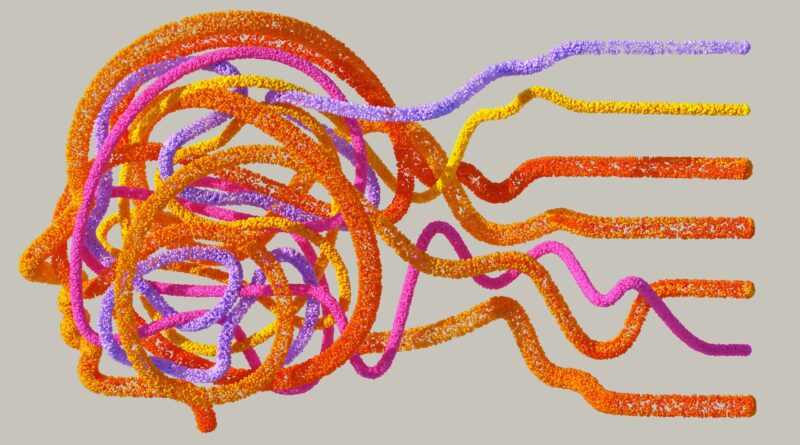Dementia-Friendly Library Services & Sustainable Communities
Dementia-Friendly Library Services & Sustainable Communities
Timothy J. Dickey
We are in a global epidemic of persons living with dementia (PLWD), but libraries are already serving this growing and vulnerable population. More than 55 million people around the world live with Alzheimer’s Disease and related dementias. The estimated total global societal cost of dementia exceeds $1.3 trillion per year. 88% of PLWD report experiencing stigma and discrimination and dementia is more prevalent in minority communities, so dementia-friendly library services also support social justice.
In response to this dementia crisis, libraries are already strengthening mental health and well-being among older adults and PLWD. Emerging medical evidence lays the foundation for such library dementia services. The best non-pharmacological interventions for dementia, which include healthy lifestyle choices, lifelong learning for mental stimulation, and the stimulation and support of social networks to combat isolation – are already part of many libraries’ core mission. Healthy living and mental and social stimulation are a great prescription for sustaining brain health in the face of cognitive decline. And these same practices may clinically delay or even prevent some cognitive decline as adults age. Great news: they are already part of what libraries offer our communities!
—Libraries can either act on their own as a community leader in developing dementia services, or collaborate with other community stakeholders for collective impact—
Libraries can either act on their own as a community leader in developing dementia services, or collaborate with other community stakeholders for collective impact. Library dementia-friendly services for older adults thus help develop healthy and sustainable communities.
My research in this area covers dementia-friendly library customer service, collection development, information services, and older-adult programming (including powerful arts-based programs). For customer service and communication, staff in a public service department must be trained in awareness and dementia-inclusive practices. The progress of dementia symptoms is highly individualized. But some general guidelines do exist for use in libraries, and any such customer-service training feeds immediately back into the community’s health, well-being, and social justice.
 The physical collections in many libraries contain plenty of materials appropriate for PLWD, as well as for caregivers (and for the education of library staff). Many forms of dementia do affect short-term memory, and thus may degrade a person’s ability to follow a long narrative plot. But importantly – and contrary to common wisdom – reading ability does not disappear for many PLWD. This finding is important for older adults and libraries: dementia does not cancel out reading programs and literacy. In addition, parts of our current library holdings, when re-purposed, leverage the power of “shared reading” between PLWD and caregivers or library staff.
The physical collections in many libraries contain plenty of materials appropriate for PLWD, as well as for caregivers (and for the education of library staff). Many forms of dementia do affect short-term memory, and thus may degrade a person’s ability to follow a long narrative plot. But importantly – and contrary to common wisdom – reading ability does not disappear for many PLWD. This finding is important for older adults and libraries: dementia does not cancel out reading programs and literacy. In addition, parts of our current library holdings, when re-purposed, leverage the power of “shared reading” between PLWD and caregivers or library staff.
In addition, libraries can offer good, current information in print and online to meet information needs for older adults and caregivers: information on diet and brain-healthy living (for prevention), as well as medical texts, caregiver support, consumer finance, long-term care, and end-of-life questions. We also can offer a variety of memoirs (there even exist first-person memoirs by PLWD) and fiction for all ages that treats PLWD honestly. As with library customer service training, these collection development choices help make libraries sustainable community resource hubs.
Finally, there is a rich variety of older-adult library programming with specific therapeutic benefits for fighting cognitive decline. I believe that libraries’ positive impact on healthy and sustainable communities through participation in dementia services reaches its peak in our adult programs. Many public libraries already have discovered two popular instances of dementia-friendly programming: Memory Cafés and the Tales and Travel program. Both programs offer regular mental and social stimulation to older adults and their caregivers. Both are easily adopted as an extension of regular library programming. And both allow the library to position itself as a leader (or collective-impact collaborator) within the broader community.
The research into art therapies for dementia is not yet comprehensive.. However, it seems clear that any kind of creative engagement (music, dance, poetry, storytelling, painting, drama) strengthens mental “resilience,” builds awareness of control over life, and can even counter depression and behavioral issues. Art forges connections to one’s culture, and to individual memories as a kind of “life story and reminiscence work.” So any kind of artistic expression in library programs can boost mental strength and resilience, as well as supporting creative cultural connections, and arts programming taps more deeply into our potential for community impact.
Music is specifically known as the most powerful memory-preserving art form, since musical memories travel multiple neural pathways and persist longer than other types of information. To capitalize on the cognitive and behavioral benefits of music therapies, some libraries offer song programs or even host dementia choirs to provide musical (and social) stimulation for PLWD. Libraries also can partner with organizations such as Music and Memory. This program provides PLWD with personalized therapy playlists of music (on donated iPods or phones) to reach deeper musical memories and to stimulate better cognition.
Other arts programs engage PLWD through different media. A program from New York’s Museum of Modern Art provides specialized dementia-friendly events that spark caregiver conversations and reminiscence therapies around visual art. MOMA will partner with local institutions to bring the program to you. The Alzheimer’s Poetry Project facilitates creative engagement with poetry for PLWD, blending shared poetry-writing and rousing spoken group performances. Even drama has its place in the spectrum of dementia-friendly arts programming. TimeSlips is a complete program of playwriting and shared dramatic production activity among volunteers and PLWD.
In all of these examples of dementia-friendly library services, we can embrace a leadership position, either within a community-wide approach to PLWD or as a leader. We can also share the vision of offering regular mental and social stimulation associated with these programs. Library dementia services create a strong and positive collective impact on older adults in our communities through lifelong learning, mental stimulation, and social connections.
This article is a Translation of the book chapter:
Dickey, T.J. (2023), “Public Libraries’ Contribution to Sustainable Dementia-Friendly Communities”, Williams-Cockfield, K.C. and Mehra, B. (Ed.) How Public Libraries Build Sustainable Communities in the 21st Century (Advances in Librarianship, Vol. 53), Emerald Publishing Limited, Leeds, pp. 283-292. https://doi.org/10.1108/S0065-283020230000053026
Cite this article in APA as: Dickey, T. J. Dementia-friendly library services & sustainable communities. (2025, January 13). Information Matters, Vol. 5, Issue 1. https://informationmatters.org/2025/01/dementia-friendly-library-services-amp-sustainable-communities/
Author
-
Timothy J. Dickey, a 2021 ASIS&T Distinguished Member and winner of the 2022 ALA-RUSA Margaret E. Monroe Award for Library Adult Services, is a librarian and library science educator, currently serving as Adult Services Librarian with the Columbus (OH) Metropolitan Library. Timothy also has many years' experience creating and delivering courses both online and in person with a current repertoire of courses in Library automation, Reference, Cataloging, Research methods, and Music librarianship, for Kent State University, the University of Washington iSchool, the Catholic University of America, and San Jose State University. Prior to that he assisted Dr. Lynn Connaway at the OCLC Office of Research, with work in data mining, user studies, and an IMLS grant project evaluating virtual reference services. He holds a Ph.D. in Musicology from Duke University, and the M.L.I.S. from Kent State University. His professional publications have appeared in JASIS&T, Library Resources & Technical Services, Information Technology and Libraries, Library & Information Science Research, the ASIS&T Bulletin, Libri, College & Research Libraries, Explorations in Renaissance Culture, Plainsong and Medieval Music, and Cambridge’s Early Music History; he has presented research at the ALA Annual Conference, the annual meeting of the American Society for Information Science & Technology, ALISE, the Charleston Conference, the Library Research Seminar, and the University of Wisconsin Library History Seminar. Dr. Dickey's book Library Dementia Services: How to Meet the Needs of the Alzheimer Community was published by Emerald in 2020.
View all posts





